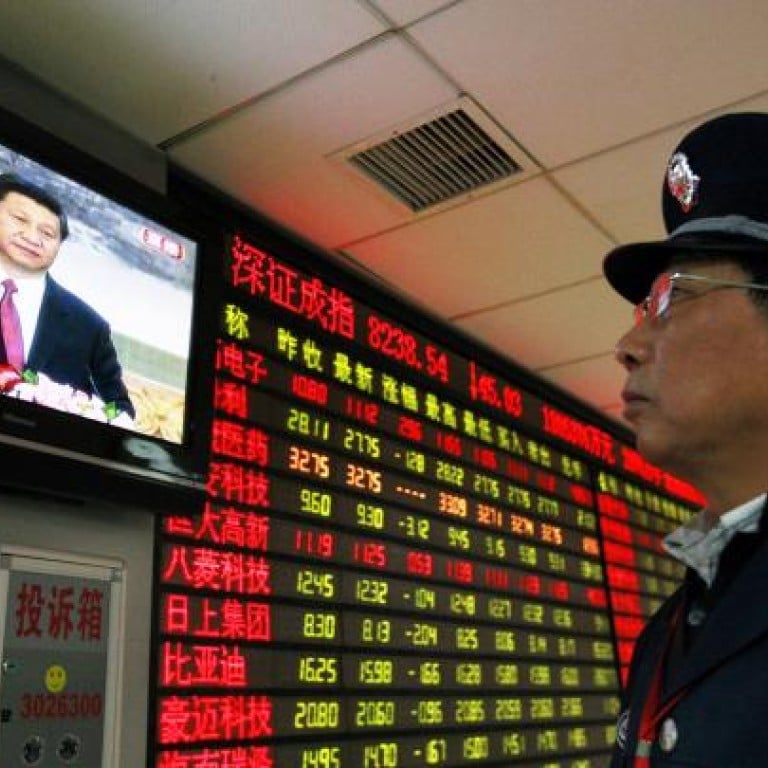
Market cool to the new lower-growth leaders
Concern that there will not be drastic action but a steady-as-it-goes approach to reform by the conservative standing committee
Hong Kong and China stocks fell sharply on concern the new generation of Chinese leaders will accept lower economic growth over the coming years.

The Communist Party "faces many severe challenges, and there are also many pressing problems within the party that need to be resolved", Xi Jinping, the man who will run China for the next 10 years, told the press yesterday.
The benchmark Hang Seng Index lost 333.06 points, or 1.55 per cent, to finish at 21,108.93, the lowest level since October 12. Turnover was HK$52.9 billion, compared with a one-month average of HK$55.8 billion.
The market is concerned that the new leaders would not take drastic action to solve urgent issues facing China.
The reform will likely be gradual as in the past, said Shen Minggao, head of China Country Research at Citigroup.
The majority of the Standing Committee is dominated by people who are considered relatively conservative and opposed to major political or economic reforms.
They are likely to be pro-business and pro-stability, Shen said.
Shanghai stocks fell to a seven-week low, shedding 1.22 per cent to stand at 2,030.29 points, the lowest since September 26.
Xi also assumes the role of chairman of the Central Military Committee.
Meanwhile, Li Keqiang will replace Wen Jiabao as the nation's new Premier. The 18th Standing Committee of the Politburo, the innermost ring of the mainland's decision-making body, was also elected, with the number of members reduced to seven from nine previously.
The Hang Seng Index has risen more than 3,000 points since September, following the US announcement of another round of quantitative easing.
"A consolidation after such a sharp gain is reasonable," said Ben Kwong man-bun, chief operating officer at KGI Asia.
Yesterday's fall also tracked big losses on Wall Street, as investors worried that US lawmakers were not making progress in trying to avert the fiscal cliff.
President Barack Obama has urged both parties in the Congress to stop arguing and take action to solve the US's problems.
"Today is another typical case for investors to look for excuses to lock in profit," said Kwong.
"A year-end rebound is likely to appear in December as concerns are removed," he said.
Insurers, which have heavy investments in the onshore market, fell sharply as A shares hit a new low. China Life lost 1.98 per cent to finish at HK$22.25.
Esprit surged by 22 per cent to finish at HK$12.96, after its ex-chairman increased his stake in the firm to 10.33 per cent from 4.79 per cent. Tencent lost 6.95 per cent to finish at HK$249.20, after its third-quarter profit missed estimates. The company said net income rose to 3.22 billion yuan (HK$3.98 billion) from 2.45 billion yuan last year.
PICC Group meanwhile is in advanced talks with American International Group Inc, China Life and at least two other companies to become cornerstone investors in its up to US$4 billion Hong Kong initial public offering, according to Reuters.

